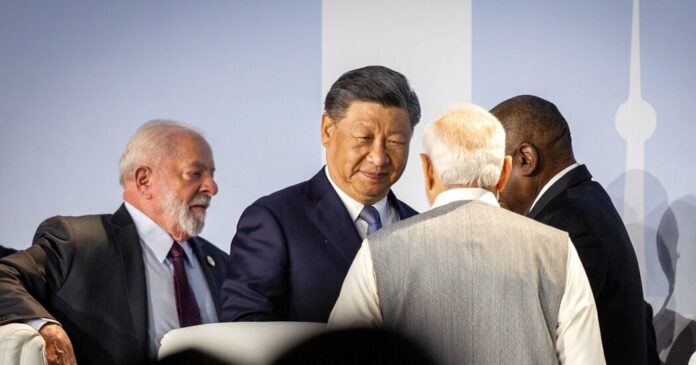China indicated on Monday that its top leader, Xi Jinping, will skip the Group of 20 summit meeting in New Delhi this weekend, dealing a blow to India, the event’s host nation, and raising questions about Mr. Xi’s profile as a global statesman.
China will send the premier, Li Qiang, to the event, said Mao Ning, a spokeswoman for China’s Foreign Ministry, at a news briefing. Ms. Mao declined to explain the reason for the decision and refused to answer questions about Mr. Xi. The Chinese leader has never missed a G20 summit, which brings together 19 countries and the European Union, since taking power in 2012.
The move comes amid growing friction between China and several members of the G20 — namely the United States and India — over Beijing’s continued support for Russia, in the case of Washington, and its increasingly aggressive territorial claims around Asia, in the case of India.
The opacity of Chinese politics and Beijing’s reticence make it difficult to know why Mr. Xi appears to have chosen not to attend the summit. Analysts say it could reflect Mr. Xi’s preference for groupings in which China is more dominant, such as the recently concluded BRICS summit of emerging nations in Johannesburg. Given that Mr. Xi would be missing an opportunity to meet with President Biden on the sidelines of the summit, the move might suggest that Mr. Xi wants to ease tensions with the United States on his own terms.
The G20 event also comes as China’s economy is facing one of its toughest periods in years over an escalating housing crisis that could prove to be one of the biggest challenges to Mr. Xi’s rule. Mr. Xi’s absence could point to a need to be in Beijing to deal with urgent economic problems.
Mr. Xi’s tight grip on power means other countries’ leaders will be unsure if Mr. Li has the authority to follow through on any decisions made at the summit.
“The fact there is such speculation every time there is a ‘no show’ is indicative of the uncertainty that not only the opacity creates but also the fact that everything seems dependent on Xi, given his centralization of authority,” said Ian Chong, an associate professor of political science at the National University of Singapore.
“If leadership externally and, for that matter, internally rides so much on one individual, that makes for a fairly brittle situation, no matter how powerful that individual,” he added.
In India, Mr. Xi’s absence will be widely viewed as a snub to Prime Minister Narendra Modi of India, who is counting on the summit to burnish his own credentials as a global leader.
Tensions have run high between Beijing and New Delhi, which has drawn closer to the West through a security grouping called the Quad that includes the United States, Australia and Japan.
China and India are also deeply at odds over their shared border, a dispute that was inflamed last week when China’s Ministry of Natural Resources released a map that lay claim to the entire northeastern Indian state of Arunachal Pradesh and the Aksai Chin region, a high-altitude plateau claimed by both countries. The Global Times, a nationalist Communist Party newspaper in China, posted about the map on the social media site X, formerly known as Twitter.
India said it responded by lodging a strong protest with China. Subrahmanyam Jaishankar, the foreign minister, called the Chinese map “absurd” and criticized Beijing for what he called its “old habit” of releasing maps that rename disputed territories in an attempt at asserting China’s claims. Other nations including Malaysia and the Philippines have raised similar complaints. (China has described the map as routine and urged countries not to “over-interpret the issue.”)
“Those maps essentially are political statements,” said Collin Koh, a senior fellow at the S. Rajaratnam School of International Studies in Singapore. “Certain Chinese media chose to amplify it, and they would not be doing that without official sanction.”
The dispute over the map raises the question of what, if any, progress had been made earlier this month when Mr. Xi and Mr. Modi of India met on the sidelines of the BRICS summit. The countries said they had discussed the border dispute.
That summit was viewed as a major victory for Mr. Xi when the grouping, which includes Brazil, Russia, India, China and South Africa, agreed to invite six new members after Beijing had lobbied heavily for an expansion.
In recent months, Mr. Xi has traveled only to countries where he has been assured a friendly welcome, like Saudi Arabia, Russia and, most recently, South Africa.
Victoria Kim and Olivia Wang contributed reporting.


